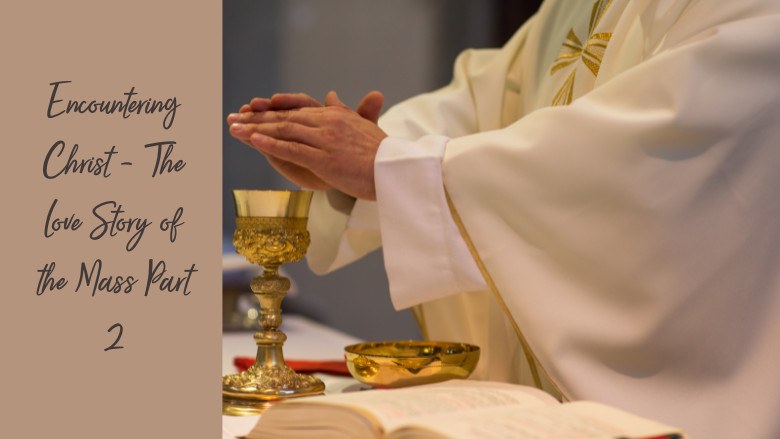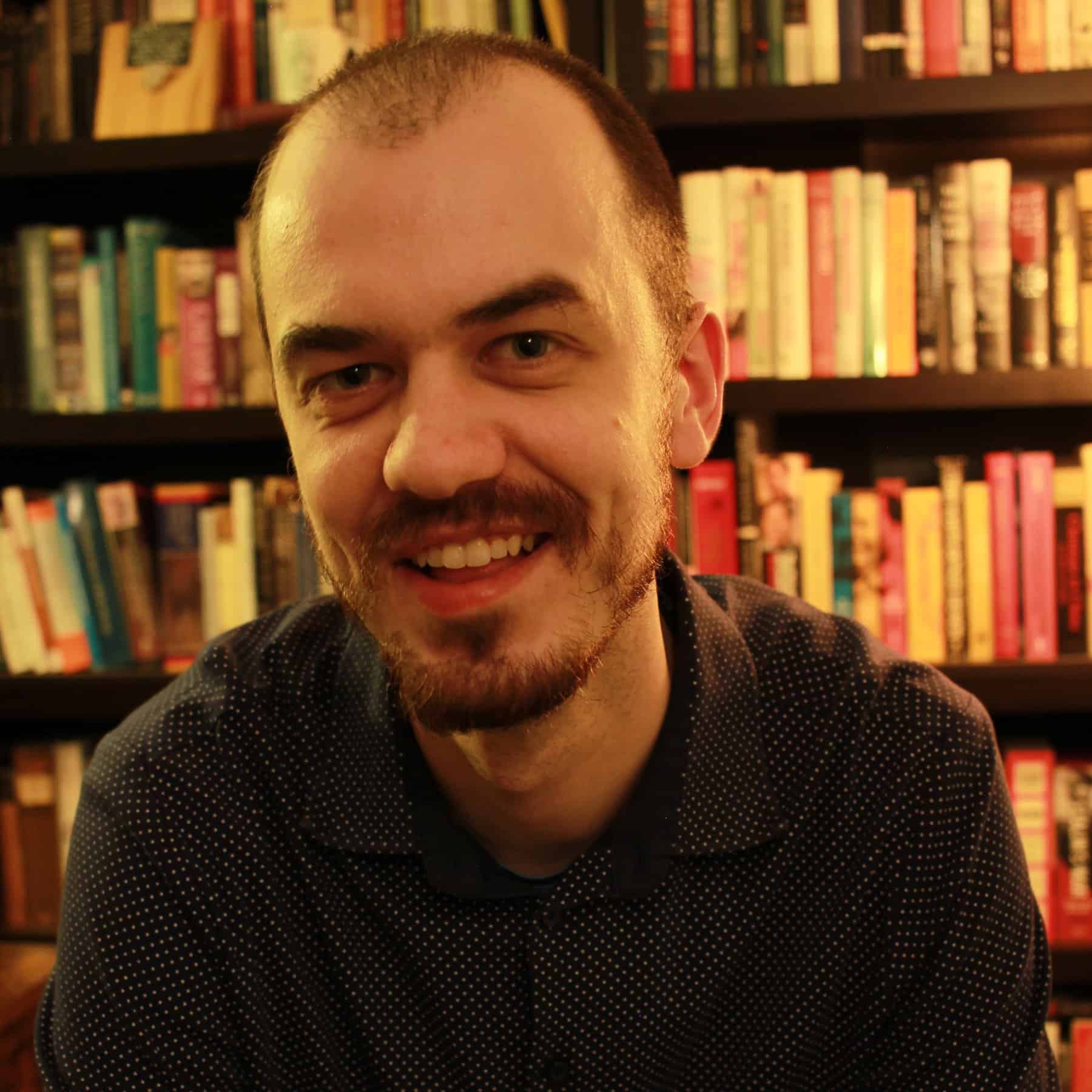
Stock Photo Canva
By Dan Sherven
This series of reflections is based on Bishop Robert Barron’s The Mass. Watch Bishop Robert Barron’s The Mass through Word on Fire Catholic Ministries. Find the First Article in this series here.
Early on in the Mass, there’s a section of worship called the “Gloria.” That’s when we give glory to God in the highest. It produces peace on earth. Because when we make God the highest point of our attention, lifted up, everything else falls into place. The Suffering Servant, Christ, is the archetype which makes everything else work properly—if Christ is in the highest.
That peace arrives both in our individual lives and in Christian societies. When heaven is the highest, earth works. In other words, when Spiritual Reality is worshiped correctly, all things in material reality can play their proper role, even though that proper role could still be rife with suffering. It’s at least righteous suffering, which should be easier for us to bear, with Christ.
The highest point of our attention is the same thing by definition as that which we worship. Bishop Barron says that when we give “glory to God in the highest,” it’s an expression of humility and proper praise. The inevitable result is peace “in me and around me.” The alternative—having something other than God be the highest point of attention—is by definition idolatry. The result is something far from peace on earth. Immediately, things get placed wrongly. Our focus is off.
There are many things about Christ and God that we cannot know while we are alive. But it’s important that we remain in the “cloud of unknowing.” In Second Chronicles, the Israelites are unable to continue their worship because God—as a cloud—descends into the Temple and obscures all vision. We can think of incense as a tangible sign of this, which purifies the area and provides a cloud of unknowing. We must be comfortable with not knowing because that’s often what faith is.
Faith is both to trust in things unseen as well as the evidence of things not seen. There is a divine darkness that the great mystical writers talk about, where we begin to realize that we don’t truly know God at all. A space where it would make more sense to say God does not exist, because our category of existence cannot hold God. While God’s energies do act in the world, such as the cloud in the Temple, the essence of God remains fundamentally unknown.
There is something to be said for aspects of liturgical worship that are not propositional. Meaning, things including ritual actions which are not primarily ideas. Embodied participation, going through the procedure of singing, reorients one’s perspective to the divine darkness. These are non-propositional forms of knowledge are an antidote to the digital age, where nothing is incarnate and everything is ideas. As Saint Gregory of Nyssa writes: “Wonder leads to knowing.” Here, he is talking about knowing through not-knowing.
In the Kyrie Eleison, “Christ have mercy,” we have the Greek word eleos, which is translated into English as mercy. But eleos also comes from a Greek word for olive oil, which was used to heal wounds. Here we are reminded of the Eastern Orthodox Christians, who describe the Church as a hospital for sinners. There is, then, a focus on divine mercy and healing, rather than divine justice and punishment. In the West, unfortunately, we often think of the Church as a courtroom rather than a hospital.
Our reading states that “God is the Holy Spirit who glorifies and magnifies all of creation, including us as we allow.” God comes as close to us as possible, in this life, without His presence becoming a painful burning. In other words, God is experienced as burning by those in a state of sin, and as joyful light by those in a state of grace. If God were to approach us with more presence than we could handle at that moment, it would indeed be a burning rather than a joy.
Author Rumer Godden says that “one of the good things about the Catholic church is that it isn’t respectable. You can find anyone in it, from duchesses to whores, from tramps to kings.” The ‘judgmental church person’ is too busy judging themselves and their own sins to care about judging the newcomer at Mass. The people at Mass are hopefully the people who are most aware of their own sins. That is, hopefully, why they are there. One is reminded of the Jesus Prayer: “Lord Jesus Christ, Son of God, have mercy on me, a sinner.” Or sometimes, “the sinner.”
Christ says in the Gospel of John: “Without Me, you can do nothing.” For as Saint Paul later writes in First Corinthians, God’s weakness is greater than our strength. The people at Mass are hopefully the people who most recognize themselves as sinners. These people are there because they are actively trying to better themselves through God’s weakness, not their own strength, which is itself a stance toward life that is unknowing.
Learn more about Bishop Robert Barron’s The Mass.

Dan Sherven is the author of four books, including the number one bestseller Classified: Off the Beat ‘N Path and Uncreated Light. Sherven is also an award-winning journalist, writing for several publications. Find Sherven’s work.

